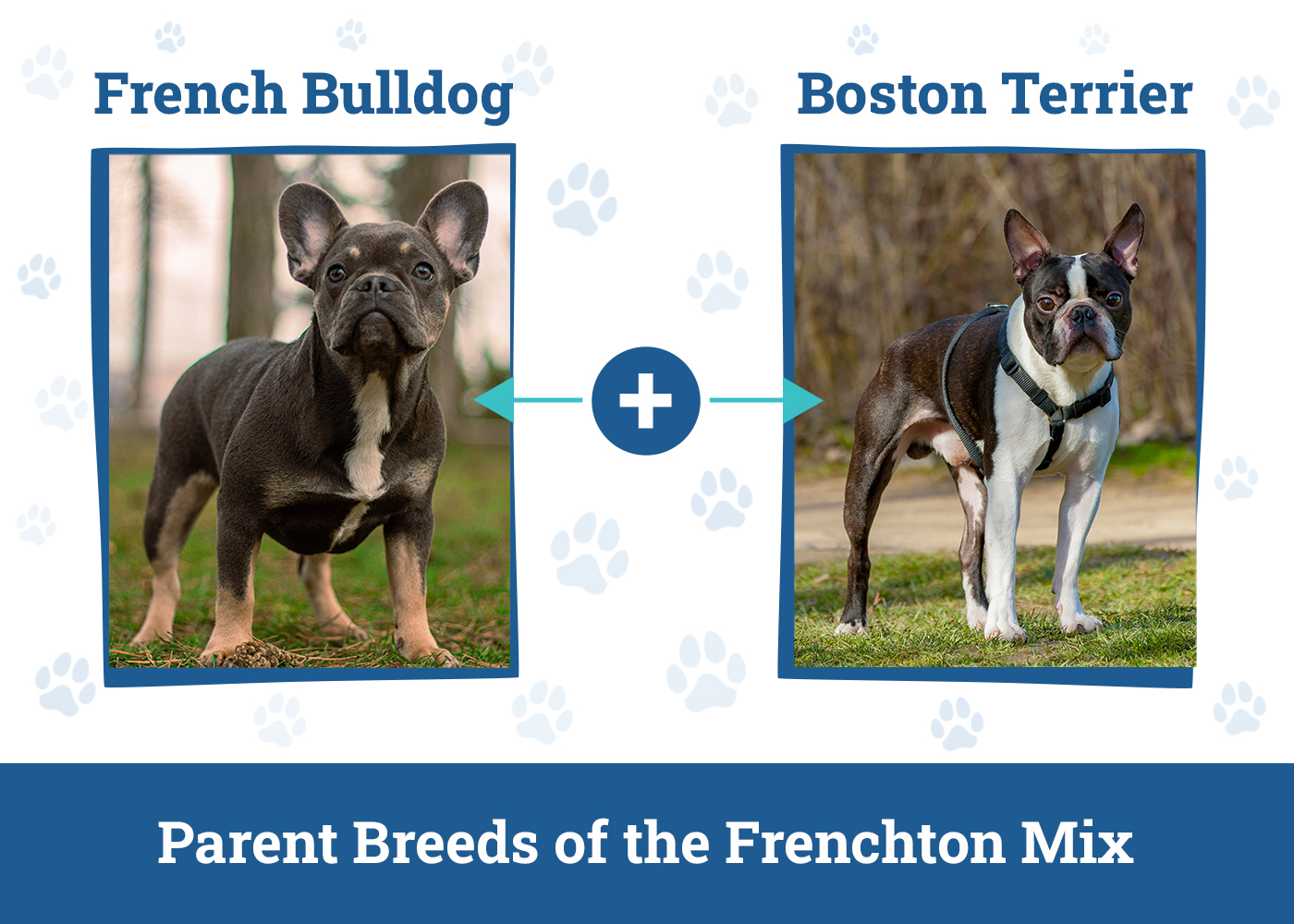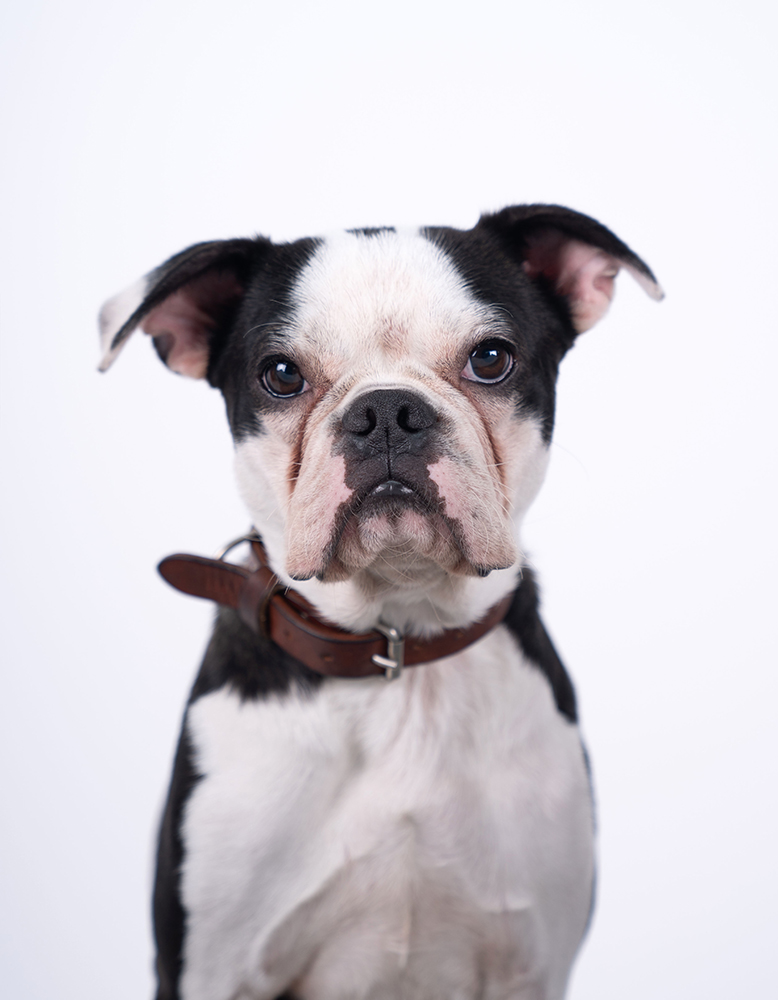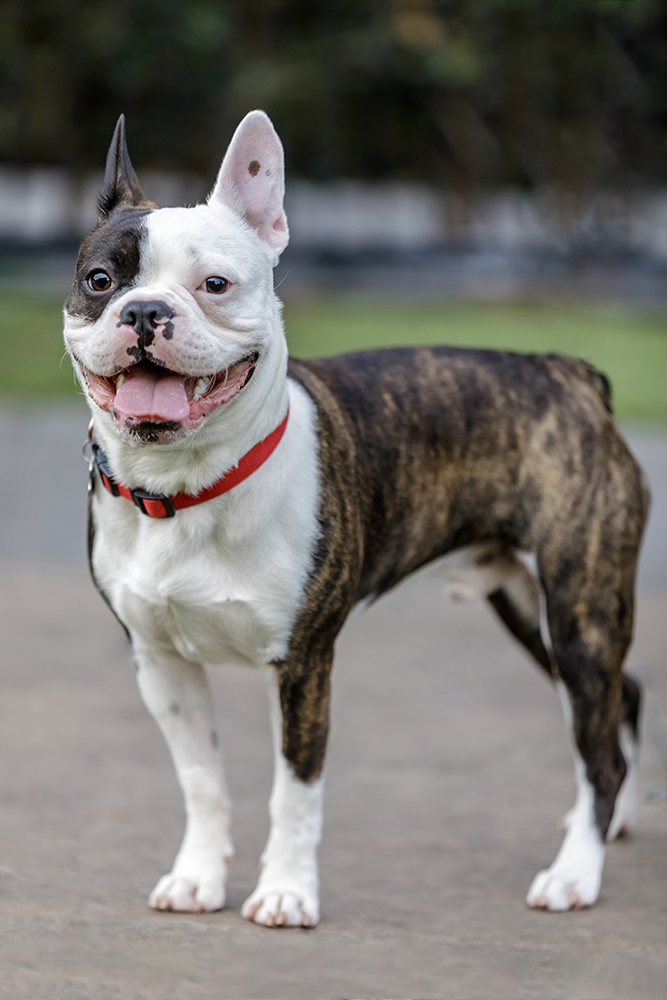The post Frenchton Dog Breed: Info, Pictures, Care, & Facts by Chris Dinesen Rogers appeared first on Dogster. Copying over entire articles infringes on copyright laws. You may not be aware of it, but all of these articles were assigned, contracted and paid for, so they aren’t considered public domain. However, we appreciate that you like the article and would love it if you continued sharing just the first paragraph of an article, then linking out to the rest of the piece on Dogster.com.
Click Below to Skip Ahead
The Frenchton or Faux Frenchbo Bulldog is another example of the slew of designer dogs. And we can guarantee you that this dog is a cutie. The breed is a cross between the French Bulldog and Boston Terrier. The combination has lent itself well to the various synonyms for this pooch, and another fun name we’ve seen is the Boston Frenchie. Whatever you call this dog, this one is a keeper. If you think this could be the perfect hybrid for you, read on before making your decision.
Breed Overview
Height:
11–14 inches
Weight:
15–25 pounds
Lifespan:
12–15 years
Colors:
White, cream, brindle, brown, pied, black
Suitable for:
Active families looking for a small, adaptable dog
Temperament:
Playful, friendly, independent
.breeds-overview { background: #f4fbfb!important; }.breeds-overview .breeds-overview__item p:nth-child(1) { color: #000000!important; }
The Frenchton is a small dog that’s adaptable and ideal for apartment dwellers. Novice pet owners will have a willing and eager pup to train and socialize. This dog strikes an excellent balance between active and laid back. They are affectionate animals that readily share the love with anyone they meet.
The parent breeds bring a lot to the mix. The French Bulldog is the most popular breed with the American Kennel Club (AKC), and it’s easy to see why. The Frenchie is a sweetheart that can’t help but melt your heart! Better yet, the Boston Terrier is just as sweet. What else can you say about a pup known affectionately as the American Gentleman? Both are cuddly companion animals that make ideal pets for singles and families.

Frenchton Puppies
Frenchton puppies aren’t easy to find because of the popularity of their parent breeds, particularly the French Bulldog. These dogs are in high demand, which has sadly fueled a significant increase in thefts between 2019 and 2022.1 Frenchies fetch ridiculously high prices even for pet-quality animals. So, breeders have little motivation to encourage hybrids, meaning any puppies you find will come at a cost.
Of course, that only scratches the surface of what dog ownership runs. The first year is typically the most expensive. A Synchrony study estimated the lifetime cost between $19,893 to $55,132 or $1,270 to $2,803 annually.2 However, things happen, and they usually cost money when they do.
We recommend reviewing your budget to ensure you can afford to get a pet before committing to your purchase. You must also factor in the time you must invest in training and socialization. Not unexpectedly, the Frenchton can be stubborn. That’s what comes from being a beloved animal companion used to getting their way—and more!
Frenchton Breed Origin & History
The history of the parent breeds is well-documented. The French Bulldog began as a selectively bred bulldog to reduce the size of the animal. Migrants brought the pup from England to France, where the Parisians and traveling Americans fell in love. The Frenchie arrived across the pond in the late 1800s, and the breed soon joined the ranks of the AKC in 1898.
The Boston Terrier is an all-American dog developed in the city and area of the breed’s namesake. The parent breeds are likely distantly related through the bulldog. That explains the similarities in their skulls with their large foreheads and short muzzles, making them brachycephalic breeds. Enthusiasts encouraged this trait for its greater bite force, an asset for the animal’s unfortunate bull-baiting past.
It’s a different story with the Frenchton. While breeders can register litters, these registries don’t have the same oversight you’ll find in groups like AKC and the United Kennel Club (UKC). That includes documentation of the hybrid’s history. It likely appeared not long after the designer dog sensation started with the Labradoodle in the late 1980s.


Temperament & Intelligence of the Frenchton 
The Frenchton is an intelligent animal, but the breed isn’t on par with dogs like the Border Collie. Nevertheless, this dog is easy to train with consistency and positive reinforcement. They score high marks for being friendly and affectionate, which are welcome traits versus the fearfulness and aggression that some animals have. It’s an excellent selling point for this hybrid.
Are These Dogs Good for Families? 
The Frenchton has the temperament to make an excellent family pet. They readily share their affection with their humans, which can even extend to strangers. They are also great with kids, with only a moderate tendency for nippiness, but early training can manage this issue. The primary concern is the dog’s safety, though. They aren’t large animals, so supervising playtime with the kids is essential for this pooch.

Does This Breed Get Along With Other Pets? 

The Frenchton loves meeting new canine friends. They don’t have the territorial problems and protective qualities that can hamper time with other dogs. But again, safety is of concern, particularly with large dogs that may not welcome this pup’s exuberance. Supervision is necessary.
However, note that the Frenchton has a moderate prey drive and may chase the family cat, even if it’s just for fun.

Things to Know When Owning a Frenchton
We’d be remiss if we didn’t address a glaring issue with the Frenchton. The shape of the animal’s skull may make the dog seem more infant-like, but it comes at a price. Research suggests the short muzzle and skull length are associated with differences in brain development.3 The parent breeds have a greater risk for respiratory conditions, heart disease, and gastrointestinal problems.
These issues can affect the dog’s quality of life and lifespan. The World Small Animal Veterinary Association has gone so far as to warn against these breeds because of their heightened risk of brachycephalic obstructive airway syndrome (BOAS), calling it a “welfare crisis.”4 We recommend scheduling a pre-purchase consultation with your vet to address any concerns.
Food & Diet Requirements 
You should feed your Frenchton puppy three to four times daily to ensure stable blood sugar. Contact your vet if your pet misses more than one meal. However, you can feed adult dogs twice daily. We suggest establishing a schedule to make monitoring your dog’s food intake more manageable. You should give them a commercial diet suitable for their life stage and size. Always have fresh water available to meet their moisture needs.
The Frenchton has a moderate propensity for weight gain. However, this dog isn’t high-energy, making watching their diet essential. You can adjust your pet’s intake accordingly based on their body condition and weight status. We recommend reserving treats as training aids to avoid overfeeding them, as this hybrid is food-motivated.

Exercise 
Daily walks will provide mental stimulation to improve your pet’s well-being. It’s a good time to reinforce their leash manners with reserved treats for this purpose. Another health concern with brachycephalic breeds is exercise intolerance. So, pay close attention to your pooch during exercise for any signs of distress, and ensure anyone walking your pet understands these risks.
Training 
It’s almost as if the Frenchton knows they have a good thing as a pampered pet. They don’t have a strong wanderlust potential. Consistency and positive reinforcement are essential. This dog is somewhat sensitive to punishment and harsh words. And how could anyone raise their voice to this cutie? Think of training as a bonding experience. With enough treats and positive reinforcement, they will be well on their way to learning basic commands.
Grooming 
The Frenchton has a smooth, short coat, meaning they are relatively easy to care for. They do shed, though, making weekly brushing with a hound glove or curry brush necessary to keep the hair under control. Check your pet’s ears and toenails regularly to ensure they don’t need to be cleaned or clipped. We also recommend getting your dog used to having their teeth brushed because of the animal’s heightened risk for dental disease.
Remember to clean your Frenchton’s facial folds with a wipe to prevent skin issues, which is sometimes a problem with the parent breeds that the hybrid may inherit.

Health and Conditions 
The list of health conditions may seem lengthy, but that comes from being a brachycephalic dog. Your vet may recommend more frequent exams and tests to monitor your pet’s health. We recommend following their advice. A medical assessment exists for brachycephalic obstructive airway syndrome (BOAS). It can help you make informed decisions regarding your pet’s quality of life.
Pre-breeding health screenings exist for many conditions. We suggest only buying from a seller who conducts these tests. You should also request to see the mother and littermates. Don’t bring home your puppy until they are over 8 weeks old, but they should preferably be 12 weeks old.
- Skin issues
- Dental issues
- Hip dysplasia
- Patellar Luxation
- Gastrointestinal conditions
- Intervertebral disc disease
- BOAS
Male vs. Female
Both the male and female Frenchton will make a delightful pet. The sizes of the two sexes are similar, making it a non-issue. So, when you go to pick out your pet, it all comes down to personal preference.

3 Little-Known Facts About the Frenchton
1. The Boston Terrier Is the State Dog of Massachusetts
The designation is a no-brainer. The state made it official in 1979 with all the fanfare you’d expect from joyous Boston Terrier owners.
2. The First French Bulldogs Had Two Different Ear Variations
Believe it or not, these dogs started with two different ear variations. The first is the rose ear, but the other variation is the bat ear, which you typically see in the United States, where breeders preferred it over the other.
3. The Popularity of the Boston Terrier Contributed to the Near Demise of the French Bulldog After World War I
At one time, the Boston Terrier almost displaced the Frenchie. The breed wouldn’t rebound until the 1950s, getting the last laugh when it topped AKC’s popular breed list.

Does the Frenchton Make a Good Pet?
The Frenchton can make an excellent pet in the right home. This dog needs someone who understands the hybrid’s unique needs. We highlighted the main points regarding the hybrid’s parent breeds, health concerns, and daily care. These dogs have a long history as companion animals that cross over to the Frenchton. This pooch needs attention, and they aren’t pets to leave alone. That makes them suitable for active families where something always seems to be happening. Your Frenchton will love the action!

Conclusion
The Frenchton is an adorable pup with the qualities of two lovable breeds. This pooch is adaptable and great for novice pet owners. They are eager to please, which can make training easier. They are naturally friendly and affectionate, which are must-have traits for families. The dog has some health issues you should know about upfront. They apply to any brachycephalic pup, making regular veterinary care necessary.
Featured Image Credit: Lina Oliveros, Shutterstock
The post Frenchton Dog Breed: Info, Pictures, Care, & Facts by Chris Dinesen Rogers appeared first on Dogster. Copying over entire articles infringes on copyright laws. You may not be aware of it, but all of these articles were assigned, contracted and paid for, so they aren’t considered public domain. However, we appreciate that you like the article and would love it if you continued sharing just the first paragraph of an article, then linking out to the rest of the piece on Dogster.com.
